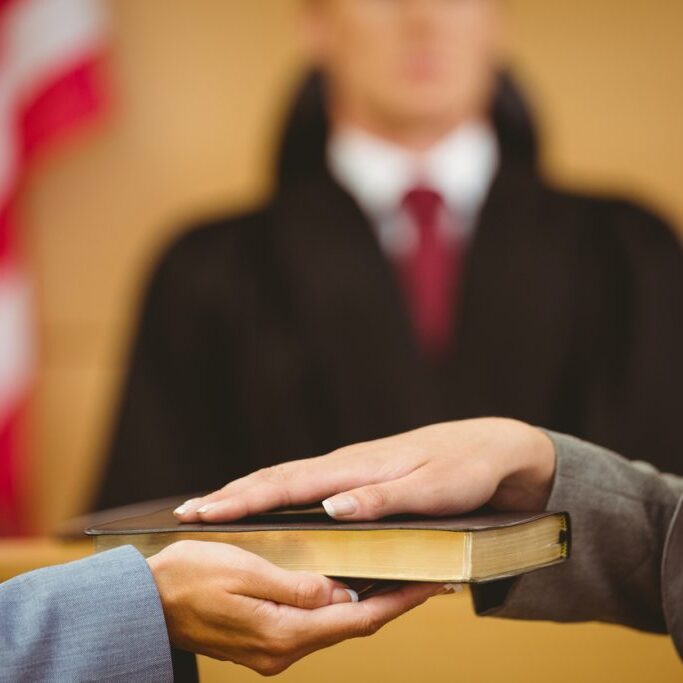Insights < BACK TO ALL INSIGHTS
ABA Updates Guidance on Witness Prep
ABA Updates Guidance on Witness Prep
By: George Calhoun
Witness preparation is often a key part of preparing for trial. Counsel often engages in mock examinations and practice sessions to help a witness prepare for trial. Such preparation, however, runs the risk of making the witness sound insincere and coached. Sometimes, it may veer all the way into improper coaching of a witness. This system of witness preparation is relatively unique to the United States. If you speak with any of our colleagues across the pond, the concept of witness preparation is largely foreign to them. Sitting down with a witness to discuss their testimony before the fact is considered unethical. UK barristers are bound not to “rehearse, practise with or coach a witness in respect of their evidence.” U.K. BSB Handbook, Rule C9.4. Instead, they are limited to a concept known as “witness familiarization,” which essentially means making a witness comfortable with the testimonial process but does not involve a discussion of the case at hand. In contrast, “the failure adequately to prepare a witness would in many situations be classified as an ethical violation” under American ethics rules. Striking the balance is hard to achieve. The American Bar Association Standing Committee on Ethics and Professional Responsibility recently updated its guidance to U.S. lawyers for witness preparation. Formal Opinion 508 examines the distinction between legitimate witness preparation and unethical efforts to influence witness testimony.
Opinion 508 begins with a helpful bullet-point list of witness preparation techniques that are considered proper:
- remind the witness that they will be under oath
- emphasize the importance of telling the truth
- explain that telling the truth can include a truthful answer of “I do not recall”
- explain case strategy and procedure, including the nature of the testimonial process or the purpose of the deposition
- suggest proper attire and appropriate demeanor and decorum
- provide context for the witness’s testimony
- inquire into the witness’s probable testimony and recollection
- identify other testimony that is expected to be presented and explore the witness’s version of events in light of that testimony
- review documents or physical evidence with the witness, including using documents to refresh a witness’s recollection of the facts
- identify lines of questioning and potential cross-examination
- suggest choice of words that might be employed to make the witness’s meaning clear
- tell the witness not to answer a question until it has been completely asked
- emphasize the importance of remaining calm and not arguing with the questioning lawyer
- tell the witness to testify only about what they know and remember and not to guess or speculate
- familiarize the witness with the idea of focusing on answering the question, i.e., not volunteering information.
Even within these acceptable witness preparation techniques, a lawyer risks sliding into improper coaching if, in discussing the testimony, they influence the witness’s testimony. Secondarily, excessive preparation is often obvious to a factfinder and can devalue a witness’s testimony.
Opinion 508 also addresses classic attorney misconduct that influences a witness’s testimony, including “speaking objections” during depositions. Speaking objections are “statements that go beyond just stating the objection or the basis for the objection and are intended—or at least suspected of being intended—to coach the witness and impede the deposing attorney’s discovery.” In my experience, this is the most common type of improper witness interference in modern practice. Secondarily, while advising a client to answer truthfully that they do not remember is acceptable, many witnesses appear to be coached to “not remember” things that they almost certainly do remember.
The second half of the opinion addresses technological innovations and the new prevalence of remote testimony. The opinion relates several instances of lawyers who were disciplined for texting or otherwise providing answers to clients during remote testimony. Frankly, the conduct proscribed by the opinion seems obviously unethical, but lawyers do get carried away in zealously representing their clients, so the reminder is helpful. The opinion lists multiple remedies for issues in remote proceedings and suggests that counsel agree on remote testimony protocols in advance of depositions.[1]
[1] See, for example, NATIONAL CENTER FOR STATE COURTS, REMOTE PROCEEDINGS TOOLKIT 47-50 (Proceedings Conduct) (2002), available at https://www.ncsc.org/__data/assets/pdf_file/0027/82377/Remote-Proceeding-Toolkit-Final.pdf.





